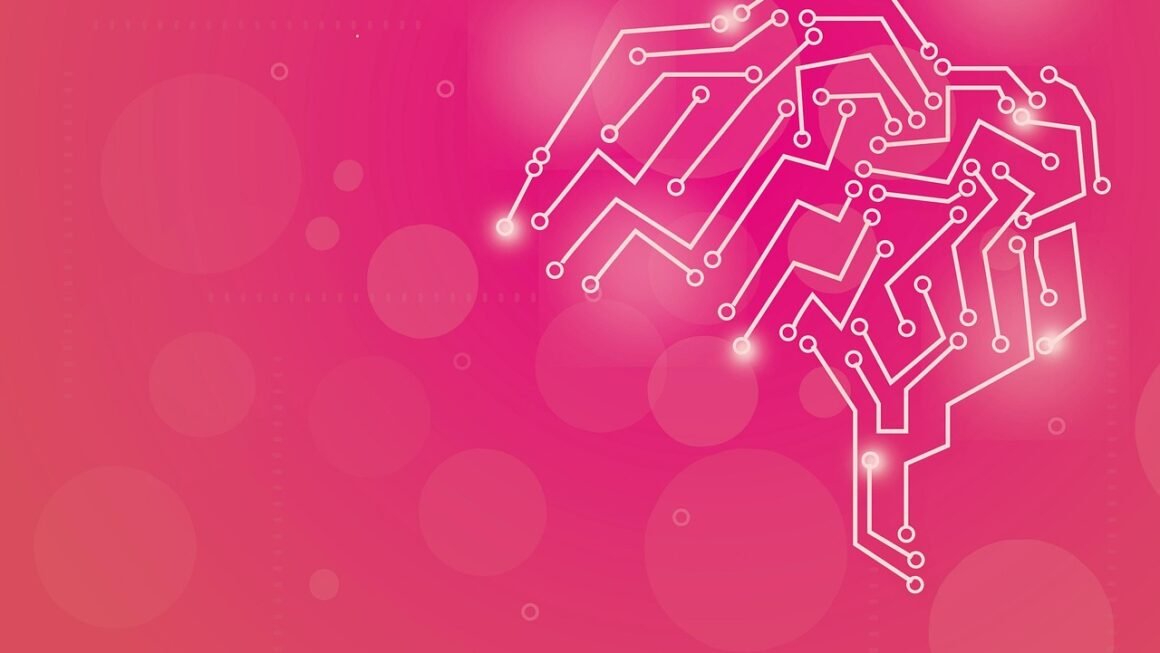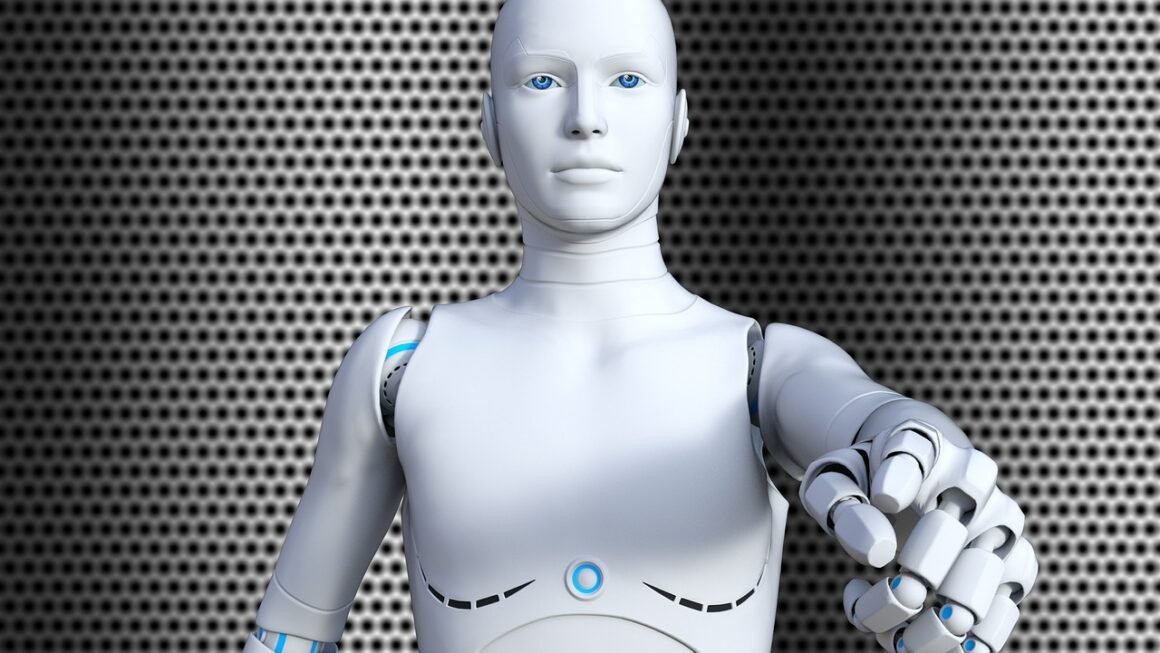The healthcare industry is constantly evolving, driven by the need for more efficient, accurate, and personalized care. Artificial intelligence (AI) is rapidly emerging as a transformative force, promising to revolutionize everything from diagnosis and treatment to drug discovery and patient management. This article explores the multifaceted applications of AI in healthcare, offering a detailed look at its potential, challenges, and future impact.
AI-Powered Diagnostics and Early Detection
Enhancing Diagnostic Accuracy
AI algorithms are capable of analyzing medical images, such as X-rays, MRIs, and CT scans, with remarkable precision. By identifying subtle patterns and anomalies that might be missed by human eyes, AI can significantly improve diagnostic accuracy. For example, AI-powered tools can detect early signs of cancer, cardiovascular disease, and neurological disorders.
- Example: Google’s Lymph Node Assistant (LYNA) is an AI system that can detect metastatic breast cancer in lymph node biopsies with greater accuracy and speed than human pathologists.
- Actionable Takeaway: Healthcare providers can leverage AI diagnostics to augment their expertise, leading to faster and more accurate diagnoses, ultimately improving patient outcomes.
Predicting Disease Risk
AI can analyze vast amounts of patient data, including medical history, lifestyle factors, and genetic information, to predict an individual’s risk of developing certain diseases. This allows for proactive interventions and personalized preventive care.
- Example: AI models can predict the likelihood of a patient developing diabetes based on their family history, diet, and exercise habits. This allows doctors to recommend lifestyle changes or early treatment to mitigate the risk.
- Actionable Takeaway: Focus on data-driven prevention by utilizing AI-powered risk assessment tools to identify at-risk individuals and implement personalized prevention plans.
AI in Personalized Treatment Plans
Tailoring Therapies to Individual Needs
One of the most promising applications of AI is its ability to personalize treatment plans based on a patient’s unique characteristics. By analyzing a patient’s genetic profile, medical history, and response to previous treatments, AI can help doctors determine the most effective course of action.
- Example: In oncology, AI is being used to identify specific genetic mutations that drive cancer growth. This information can then be used to select targeted therapies that are more likely to be effective and less likely to cause side effects.
- Actionable Takeaway: Embrace AI-driven precision medicine to customize treatment regimens, maximizing therapeutic benefits and minimizing adverse effects.
Optimizing Drug Dosage and Delivery
AI can also play a crucial role in optimizing drug dosage and delivery. By analyzing data on drug interactions, patient physiology, and treatment outcomes, AI can help doctors determine the optimal dose of a medication for each individual patient.
- Example: AI algorithms can predict how a patient’s body will respond to different dosages of anticoagulants, helping to prevent dangerous blood clots or excessive bleeding.
- Actionable Takeaway: Invest in AI-powered dosage optimization tools to improve medication adherence and reduce the risk of adverse drug events.
AI-Assisted Drug Discovery and Development
Accelerating the Drug Development Process
The traditional drug development process is lengthy, expensive, and often unsuccessful. AI is revolutionizing this process by accelerating the identification of potential drug candidates, predicting their efficacy and safety, and optimizing clinical trial design.
- Example: AI algorithms can analyze vast databases of chemical compounds to identify molecules that are likely to bind to specific drug targets. This can significantly reduce the time and cost associated with drug discovery.
- Actionable Takeaway: Integrate AI into drug discovery workflows to shorten development timelines and increase the likelihood of successful drug development.
Predicting Drug Efficacy and Toxicity
AI can analyze preclinical and clinical trial data to predict the efficacy and toxicity of new drugs. This allows researchers to identify promising drug candidates early on and avoid wasting resources on drugs that are unlikely to be successful.
- Example: AI models can predict the likelihood of a drug causing liver damage based on its chemical structure and preclinical testing results.
- Actionable Takeaway: Employ AI predictive modeling to improve the safety and effectiveness of new drugs before they reach the market.
AI-Enhanced Patient Monitoring and Care
Remote Patient Monitoring
AI-powered remote patient monitoring systems can collect and analyze patient data from wearable devices, such as smartwatches and fitness trackers. This allows doctors to track patients’ vital signs, activity levels, and sleep patterns remotely, enabling early detection of health problems and proactive interventions.
- Example: AI-powered systems can detect abnormal heart rhythms or falls and alert healthcare providers or emergency services immediately.
- Actionable Takeaway: Implement remote patient monitoring programs using AI-driven platforms to improve patient engagement, reduce hospital readmissions, and enhance chronic disease management.
Virtual Assistants and Chatbots
AI-powered virtual assistants and chatbots can provide patients with personalized support and information, answer frequently asked questions, and schedule appointments. This can free up healthcare providers’ time and improve patient satisfaction.
- Example: AI chatbots can provide patients with medication reminders, answer questions about their treatment plan, and connect them with relevant resources.
- Actionable Takeaway: Integrate AI-powered chatbots into patient communication strategies to improve accessibility, provide timely information, and enhance the patient experience.
Conclusion
AI is poised to transform the healthcare landscape, offering unprecedented opportunities to improve patient outcomes, reduce costs, and enhance the efficiency of healthcare delivery. While challenges remain, such as data privacy concerns and the need for robust validation studies, the potential benefits of AI in healthcare are undeniable. By embracing AI and integrating it into clinical practice, healthcare providers can unlock its transformative power and deliver more personalized, efficient, and effective care. The future of healthcare is undeniably intertwined with the continued advancement and adoption of artificial intelligence.



